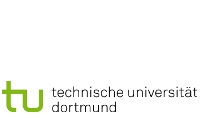Precision Heavy Quark Expansion
Principal Investigator: Thomas Mannel (Siegen)
Participating Researchers: Alexander Khodjamirian
(Siegen), Björn O.
Lange (Siegen), Alexei Pivovarov
(Siegen)
The expansion in inverse powers of the heavy quark mass became one of the most important tools in the theoretical description of hadrons containing a single heavy quark. This so-called heavy quark expansion has opened the road for QCD-based calculations in a systematic framework including estimates of uncertainties. The refinement of this method over the last two decades has lead to tremendous improvement in precision for some of the fundamental parameters in the CKM matrix, in particular for Vcb and Vub. Although the methods are quite mature in the meantime, there is still room for improvement of the heavy quark expansion methods.
The extraction of fundamental parameters such as CKM matrix elements requires aside from precise data reliable theoretical tools to deal with the strong interaction of quarks and gluons. Quantum Chromodynamics (QCD), the theory of strong interactions, confines quarks and gluons into hadrons, which eventually are observed in experiment. The mechanism of confinement is inherently nonperturbative, and hence (aside from lattice simulations of QCD) no ab initio method exists to deal with the nonperturbative aspects of QCD.
However, QCD also has the property of asymptotic freedom which allows to compute all effects related to scales above about one GeV perturbatively, since the strong coupling constant αs runs and becomes small above this scale. To this end, various effective field theories have been deviced to separate the perturbative from the nonperturbative scales, allowing to factorize amplitudes, cross sections or decay rates into a perturbatively calculable, short distance piece and a nonperturbative reminder, which has to be either taken from experiment or needs to be modeled.
Heavy quark expansions are all methods which make use of the fact that αs(mQ) is small enough to use perturbation theory, where mQ is the mass of a heavy quark. Using the machinery of effective field theory and operator product expansion, this allows us to perform an expansion in αs(mQ) and ΛQCD/ mQ where ΛQCD is the scale related to confinement.
Over the last decades this idea has been applied to exclusive and inclusive decays of heavy hadrons with a single heavy quark. The objective of this project is to achieve a further improvement of these methods in the light of the fact that in the near future very precise data can be expected from running and planned experiments. To keep up with the experimental precision, improvements on the theoretical side are clearly needed. On the one hand, improvements of the perturbative and non-perturbative side are necessary, involving higher order calculations in αs as well as obtaining information on the necessary non-perturbative input, on the other hand resummation techniques for the heavy quark expansion as well as its limitations have to be explored.

